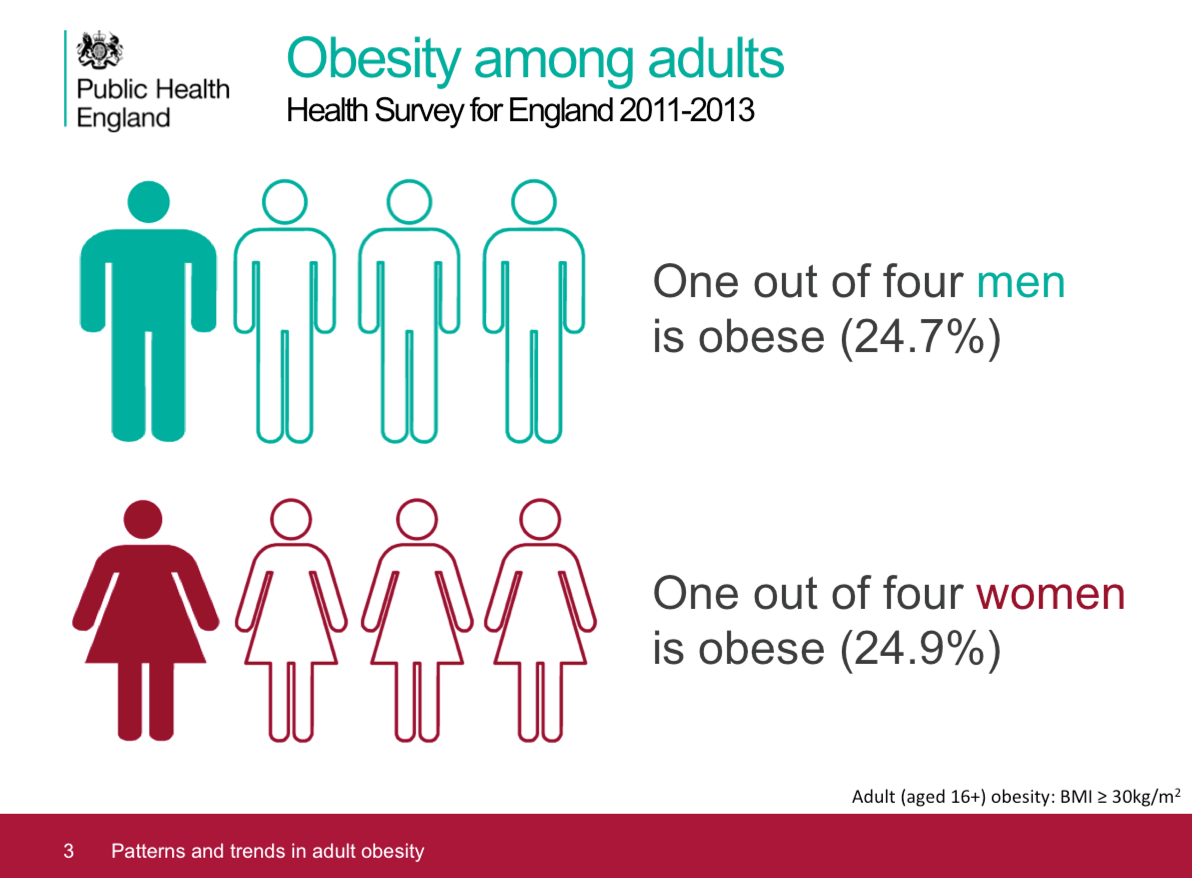|
![]()
| 1 in 4 UK adults are obese Evidence1 #366906 24.7 per cent of British adults are obese (compared with an average of 16.7 per cent in the rest of Europe) [1], [2] – and one out of four men (24.7%) and one of four women (24.9%) is obese in England. [4], [5] | 
Source: PHE Adult obesity slide set (updated March 2015) [4] |
+Citaten (5) - CitatenVoeg citaat toeList by: CiterankMapLink[1] NHS England’s action on obesity
Citerend uit: NHS England
Publication info: 2014 December, 26
Geciteerd door: David Price 9:48 PM 26 December 2014 GMT
Citerank: (4) 352351Increased risk of Type 2 diabetes Obesity substantially raises the risk of Type 2 diabetes—with excess body fat estimated to underlie almost two-thirds of cases of diabetes in men and three quarters of cases in women—and people at risk of diabetes can cut their chances of getting diabetes by 60% if they lose between 5% and 7% of their body weight. Worldwide, the number of people with diabetes has tripled since 1985. [2]57DE7179, 370567NHS EnglandNHS England is an executive non-departmental public body of the Department of Health. NHS England oversees the budget, planning, delivery and day-to-day operation of the commissioning side of the NHS in England as set out in the Health and Social Care Act 2012. It holds the contracts for GPs and NHS dentists, and commissions primary care, clinical and specialised services.58D3ABAB, 3999761 in 4 UK adults are obese24.7 per cent of British adults are obese (compared with an average of 16.7 per cent in the rest of Europe). [1] [2]648CC79C, 399987Increased risk of Type 2 diabetes Obesity substantially raises the risk of Type 2 diabetes—with excess body fat estimated to underly almost two-thirds of cases of diabetes in men and three quarters of cases in women—and people at risk of diabetes can cut their chances of getting diabetes by 60% if they lose between 5% and 7% of their body weight. Worldwide, the number of people with diabetes has tripled since 1985.57DE7179
URL:
|
|
|